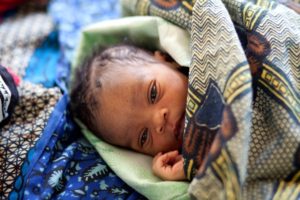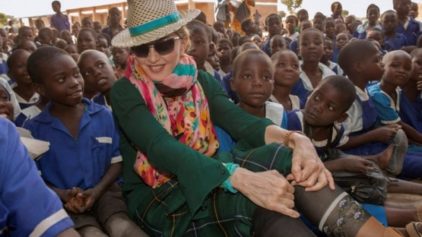A new report found that 78 percent of surveyed countries face overwhelming obstacles in reducing deaths in children. But Malawi’s notable progress proves impoverished countries are capable of keeping more kids alive.
Save the Children’s “Lottery of Birth” report, released on Wednesday, assessed 87 low- and middle-income countries’ child and maternal mortality rates. While many of the findings were deterring, the study noted that a number of underserved countries, including Malawi, have made significant strides in these health areas with replicable programs.
Since 1990, the African country has reduced its child mortality rates by 72 percent.
Two years ago, there were 68 deaths per 1,000 live births, compared with 244 in 1990.
While Malawi is still far off from obtaining equitable health outcomes among the rich and the poor, it has outpaced other sub-Saharan African countries by committing more government funds to healthcare, prioritizing maternal care and bringing medical resources to rural areas.
For example, Malawi is one of just six countries in the African Union (AU) that has met and surpassed its health-spending target, according to UNAIDS.
In 2001, the AU pledged to spend at least 15 percent of the total government budget on health. Malawi has committed 18 percent to such spending. Rwanda, which is on track to meet the Millennium Development Goals for child mortality and maternal health, has also surpassed the AU health pledge, according to the Save the Children report.
Part of the reason why poor Malawian mothers and their newborns have a better shot at survival than those in nearby regions is because of the increased focus on maternal wellbeing.
In the poorest areas of the country, 63 percent of births take place with a skilled attendant present.
While advocates have pressed the need to improve that figure, it’s still far better than what many neighboring countries face.
In Niger, which has one of the highest child mortality rates, just 8 percent of women in rural areas deliver with an adept birth attendant, according to Women and Health Alliance International.
To ensure that kids in Malawi, even ones in the most remote regions, get access to basic medical care, the country’s Ministry of Health supported a program that brings treatment to children who were once inaccessible.
Since 2008, more than 3,000 community health workers have delivered medicine and other equipment needed to treat malaria, diarrhea, pneumonia and other non-fatal illnesses, to more than 10,400 communities.
Read More at Huffington Post



